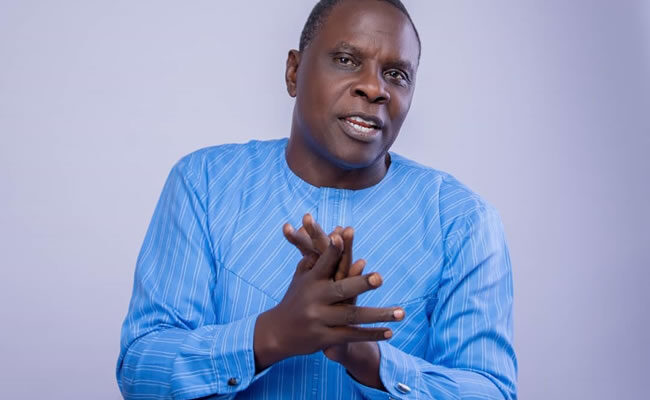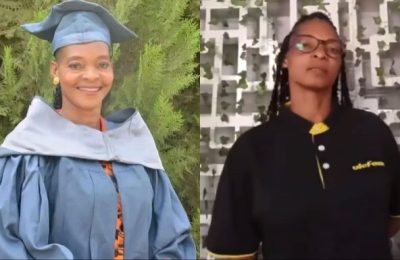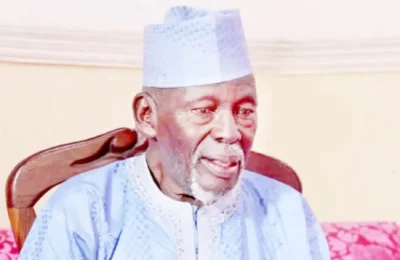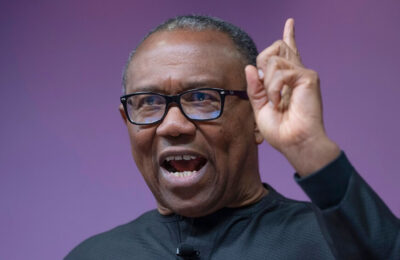

Mr Femi Aduwo, executive director of Centre for Convention on Democratic Integrity (CCDII), served as Chief Technical Officer to a foreign election mission in monitoring the 2023 elections in parts of the Nigeria, including Lagos State. In this interview with DARE ADEKANMBI, he reviews the performance of INEC, expecially the governorship election that revalidated Babajide Sanwo-Olu’s manadate as Lagos State governor for another four years.
You were part of a foreign election team that monitored the 2023 elections in some parts of the country. What is your general view about the conduct of the polls?

Regardless of the temporary interruptions, the general election came like a thunderbolt and destructive tsunami which swept away established politicians and got them uprooted. The like of Senator Philip Aduda who had been in the Senate for a record four terms, Senators Abubakar Bagudu, Gabriel Suswam, Tanko Al-Makura, Uche Ekwunife, BalaIbnNa’Allah, Kabiru Gaya, Stella Oduah, BiodunOlujimi, BashiruAjibola and so on lost their seats in the Red Chambers. Similarly, HonourablesNdudiElumelu, NkeruikaOnyejeocha and so on did not make it back to the House of Representatives. These are political heavyweights. In addition, incumbent governors seeking a trip to the Senate, which has become more or less the usual retirement, idling destination for ex-governors, were disappointed. Governor Ifeanyi Ugwuanyi (Enugu); Okezie Ikpeazu (Abia), Ben Ayade (Cross River), Abubakar Bagudu (Kebbi), Samuel Ortom (Benue), Simon Lalong (Plateau) and Darius Ishaku (Taraba) did not win their senatorial election.
The beauty of this year’s elections is that the thunderbolt effect was across political parties. In Katsina State, for example, PDP won the presidential election and APC won the gubernatorial election. APC won the presidential election in Zamfara and PDP’s Dauda Lawal won the governorship poll. Don’t forget these are APC-controlled states. In Benue, despite the incumbent governor showing support for Labour Party’s presidential candidate, Peter Obi, APC won the presidential election and also won the gubernatorial poll. In the presidential election, Plateau voted for Obi and PDP candidate won the gubernatorial election. Again, Plateau State is APC-controlled. In the presidential election, Obi won in Lagos, Enugu, Nasarawa, Ebonyi, Abia, Delta Anambra, Plateau, Edo, Cross River, Imo states and the FCT. But LP only won a governorship seat in Abia State throughout the country. Many factors were responsible for this paradigm shift and some of these issues include religion, tribe and the slogan in Nigeria that every politics is local. And one other good thing about the election is that defeated candidates have accepted the outcome in many states and have openly congratulated the winners as demonstrated by APC and Accord guber candidates in Oyo and Zamfara states. This is a welcome development.
For INEC, there were challenges. There were some infractions and some of them actually constitute electoral offences. But on the whole, INEC probably would have scored above 90 per cent if BVAS had been used optimally, especially during the presidential poll. How do you explain that the same BVAS worked to transmit National Assembly election results onto IREV and that could not happen for the presidential ballot in the same election conducted the same day? That singular act has dented the image of INEC and reduced performance acceptance to about 50 per cent.

In addition, INEC’s defence that Senator Aishatu Dahiru Ahmed’s name was not listed as one of the directors of Binani Printing Press Limited is medicine after death. Such sensitive documents could have been printed by Nigerian Printing and Minting Company under the protection of Department of State Services. We all know in this country how politically exposed persons use proxy companies to get contracts. By virtue that Dahiru resigned as director to fulfill electoral righteousness does not mean she does not control the company.

It is significant to note that the use of BVAS reflected in several announced results and this created upsets and has mitigated incidence of over-voting and ballot box stuffing. Yes, BVAS has come to stay as the game changer. The use of technology improved the transparency of the election quite significantly and these devices are recognised by law. Now, it is almost impossible to record votes that are higher than what can be scientifically verified, thanks to BVAS. It was deliberate that BVAS was not made to work during the presidential poll. That is why l would recommend a panel made up of DSS, police, CSOs and donor agencies to find out what went wrong with BVAS on presidential election results transmission.
In what areas would you want to see INEC improve for future elections?
We should not forget the INEC chairman, National Commissioners, RECs and staff are not from the moon. As we have bad policemen and bad judges, so do we have the good ones. In the same INEC that many see a lot of rot, we have had some credible INEC commissioners and members of staff. For instance, a former REC of Akwalbom State, Mike lgini, was exceptional. ln 2009, INEC set up Election Observation Monitoring Board, of which l was a member, along with the like of the lNEC National Commissioner, Festus Okoye, Dr Mike Ozekhome, SAN, the immediate past Attorney General of Ekiti State, Wale Fapohunda, SAN and five others. Section 160 of 1999 Constitution as amended empowers INEC to set up such board or committee. The board conducted the 2009 Anambra State governorship election generally considered to be credible.
l started observing INEC organised elections in 2003 and over the years my organisation has jointly organised seminar and conferences with lNEC on voter education, delineation of constituencies, etc. The level of corruption in INEC and among members of staff of the commission is monumental. Without the involvement of top members of staff, nobody, including the national chairman, could perpetrate any electoral fraud in INEC. It will shock you to know that even members of staff in INEC bribe top officials to be posted to some states because they know election period is harvesting time. I will also suggest that the appointment of commissioners should be looked into. In a situation where politicians nominate INEC chairman, commissioners and RECs, credible elections may not be attainable.
In spite of all these improvements, the Electoral Act still needs to be strengthened to assert that where BVAS is not used the votes must not be counted. Also, adequate punishment should be meted out to any electoral officials caught in electoral malpractices. The idea of imposing a fine on such people will not deter others who are similarly inclined. I think a jail term of up to five or even 10 years should be added.
You monitored the guber election in Lagos with some foreign partners. The governor of Lagos State, Babajide Sanwo-Olu, won his re-election. Peter Obi of LP having won the state in the first election, it was feared that things would be tough for Sanwo-Olu and APC. What did you see in the state?
The gubernatorial and state assembly election did not face the same problems with the use of BVAS as that of presidential election of February 25. Result from polling units for the gubernatorial election were uploaded and displayed for public scrutiny. At the time of the declaration of presidential results, only one quarter of result was viewable in IREV. But by midday of March 19, gubernatorial race, available results online ranged from 62 to 97 per cent depending on the state, including Lagos. The cosmopolitan nature of Lagos makes the state a guinea pig for our democratic experiment. Whatever works in Lagos should be considered applicable elsewhere.
Lagos has approximately 13,325 polling units populated by citizens from all parts of Nigeria. Some areas are populated predominantly by one ethnic group. In all parts of Lagos, however, the most ubiquitous are the Yoruba. This is because Lagos is historically and geographically part of Yoruba sociopolitical civilisation (an identity factor that many confused with tribalism in the last election). Following the political thunderbolts against APC in the first election, many had written off Governor Babajide Sanwo-Olu and others felt his chances were very slim. But the governor returned to the trenches to work out more strategies.
Many things worked in favour of Sanwo-Olu. The traditional stakeholders in the state did not take the development with levity. They came out in full force to campaign for the governor, the like of the current Minister of lnterior, Rauf Aregbesola, who was not visible during APC presidential campaign in Lagos, relocated to the state weeks ahead of the gubernatorial election. He made the target of his campaign for Sanwo-Olu the non-Yoruba. Sanwo-Olu himself didn’t leave any stone unturned. He met with the Christian religious leaders as well as other necessary stakeholders to seek their support, which eventually worked out for him. The party embarked on a serious door-to-door campaign and mobilisation of its members before the election and it paid off.
The political parties should encourage professional research and opinion poll by credible bodies. l spoke with 230 of LP members from South-East zone after the presidential poll, they told me point blank that they would not vote for LP guber candidate in Lagos. During my interaction, the educated non-Yoruba in Lagos decided to vote for Sanwo-Olu based on two issues: being a Christian and principally because many voters believe the LP candidate does not have adequate experience and maturity to govern a state like Lagos.
But there were complaints about the election in Lagos…
Complaints about the electoral process in Lagos are traceable to less than four per cent of the polling units. They account for less than 10 per cent of the win margin. This is based on average voter turnout. Where the law makes substantial compliance with the benchmark for credible and acceptable election, it is difficult to conceive of anything other than an affirmation of what has already been declared. Sanwo-Olu with whom a majority of the voters identified won the gubernatorial election in Lagos State.
Remarkably, in many states, the dynamics changed after the presidential election with political parties clinging to victories after losing to the opposition during the 25 February presidential election. It was the same story in Oyo where Seyi Makinde of the Peoples Democratic Party (PDP) led APC’s Teslim Folarin with a wide margin as against what transpired during the presidential election which the APC won.
The talk about an interim government is gaining currency with the DSS affirming that the threat is real. What do you make of this?
Interim government arrangement is possible under the military regime as it was during General Ibrahim Babagida regime in 1993 when he stepped aside. To start with, military government is an aberration. In some cases, decrees and rule of men prevail over the rule of law. The 1999 Constitution as amended does not recognise interim government in any form. If it is true some set of people or politicians are calling for interim government, they should know they are indirectly asking the military to take over and that would a direct invitation to anarchy.
READ ALSO FROM NIGERIAN TRIBUNE









